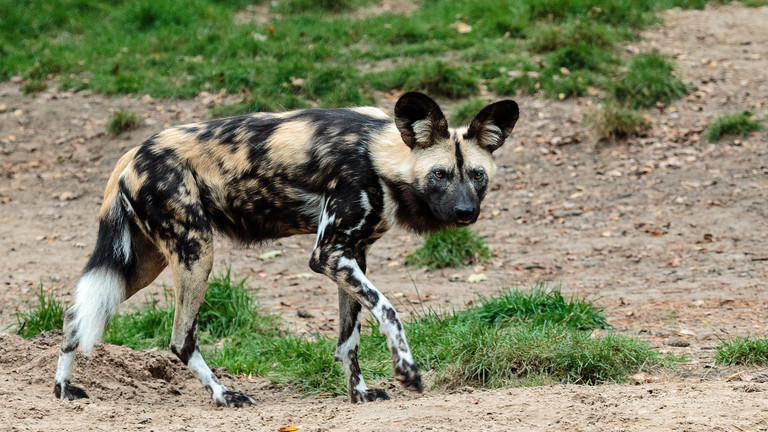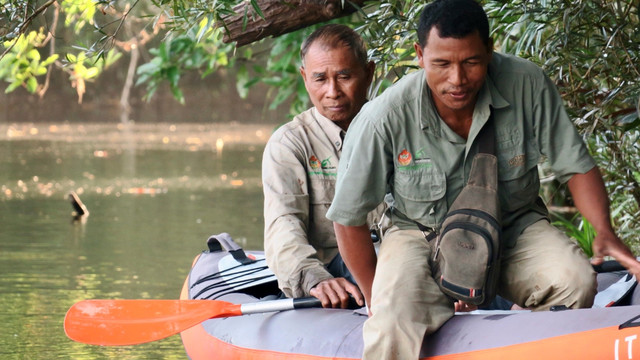IIED webinar: Community-based approaches to tackling poaching and illegal wildlife trade
IIED hosted a webinar on 30 March 2020 to discuss community-based approaches to tackling illegal wildlife trade, with a focus on responding to human-wildlife conflict.

An African wild dog. Carnivore attacks on livestock result in significant costs to local households (By Zweer de Bruin via Flickr, CC BY-NC-ND 2.0)
There is growing recognition among practitioners and policymakers that indigenous peoples and local communities are key to the success of initiatives aimed at tackling poaching and illegal wildlife trade (IWT). Community engagement can entail a wide range of approaches including, but not limited to:
- Involving communities in law enforcement efforts
- Generating incentives for community-based conservation
- Involving communities in decision-making on IWT project design and implementation
- Recognising and supporting community rights to manage and benefit from wildlife, and
- Reducing the costs of living with wildlife – including reducing conflict between communities and wildlife.
This webinar focused on theory and case studies related to reducing conflict between communities and wildlife in the context of tackling IWT.
Event coverage
Read a report on the Q&A session that followed the speaker presentations, and watch a recording of the webinar below or on IIED's YouTube channel.
You can review the speakers' presentations on IIED's SlideShare channel, as follows:
The webinar was part of the work of IIED's People not Poaching (PnP) initiative, which includes a learning platform and online database that aims to build a global evidence base and awareness and knowledge-sharing about community approaches to reducing IWT.
This was the first in a series of webinars; our next webinars will showcase studies from across the world. If you know an initiative that deserves attention, email the PnP team.
Programme and speakers
- Holly Dublin, IIED senior associate, provided an introduction to the First Line of Defence (FLoD) initiative, which uses an interactive methodology underpinned by a theory of change (ToC) approach, to help engage communities more directly in the design of projects aimed at tackling IWT. The FLoD ToC identifies four key approaches to effective community participation; Holly’s presentation focused on one of these – decreasing the costs of living with wildlife.
- Liv Wilson-Holt, PnP database editor, provided a guided tour of the People not Poaching initiative to showcase community efforts to tackle illegal wildlife trade. Liv shared a diversity of case studies that are responding to conflict between communities and wildlife.
- Amy Dickman, director of the Ruaha Carnivore Project, talked about her work in Tanzania that empowers the communities surrounding Ruaha National Park to promote co-existence and reduce IWT.
IIED researcher Francesca Booker chaired the webinar and moderated the question-and-answer session.
Contact
Francesca Booker (francesca.booker@iied.org), researcher (biodiversity), IIED's Natural Resources research group




